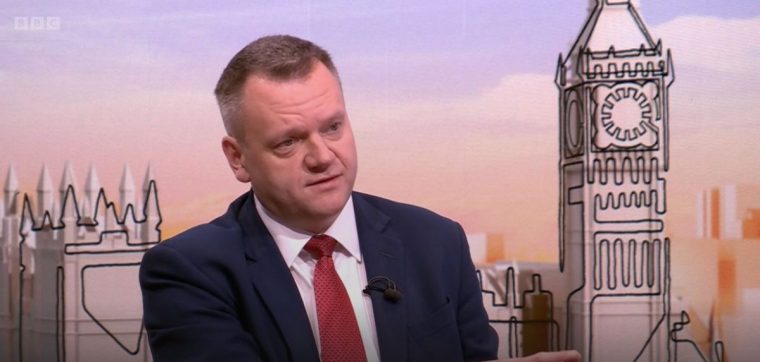Minister warns this is not the time to fragment defence and that attempts to restrict British access could undermine security in Europe
The UK has warned the EU against trying to impose tough conditions on British participation in Brussels’ new €150bn (£130m) rearmament fund for fear it could undermine European defence.
EU Relations Minister Nick Thomas-Symonds told The House magazine, in an interview shared with The i Paper, that doing so would risk “fragmenting” European defence at a time when Russia is stepping up its airspace incursions and provocations.
The UK and EU agreed a security and defence partnership at Sir Keir Starmer’s so-called Brexit “reset” summit in May, which paved the way for British participation in Brussels’ new €150bn (£126bn) rearmament fund, Security Action for Europe (Safe).
The scheme is designed to bolster European security amid the war in Ukraine and as the United States under Donald Trump pulls back its support for the continent.
 Nick Thomas-Symonds warned against restricting UK access to the EU’s Safe fund (Photo: BBC News)
Nick Thomas-Symonds warned against restricting UK access to the EU’s Safe fund (Photo: BBC News)
But reports suggest that in negotiations on UK participation in Safe, some EU countries such as France have insisted on limiting the use of British military components in rearmament, including a 50 per cent ceiling on the value of parts financed through the scheme.
The i Paper understands that other member states want the UK to have more access, as the biggest military power on the continent, followed by France, and is confident the European Commission backs them.
Thomas-Symonds said he had warned that attempts to restrict British access could undermine security in Europe.
He told The House: “This is not the moment to fragment European defence. This is not the moment to fragment European defence industrial capacity.
“I’ve taken that message to the EU. I think it is very well understood.”
‘No direct link’ between food and drink youth mobility deals
Thomas-Symonds also rejected the attempts by some in the EU to make signing a food and drink (SPS) deal on cross-border trade contingent on the UK making concessions on a new “youth experience” under-30s visa for travel between the two territories.
“There is no direct link between those two things in the negotiation,” he said.
“There should be no doubt about that.
“This is a balanced package across a number of areas, and I don’t see or recognise that particular framing about this at all.”
But he refused to say that reports suggesting the EU had effectively linked the two negotiations were wrong.
“What I was talking about was the fact that… we will want to deliver the whole package,” he replies. “I’ve been very ambitious in terms of delivery on the SPS agreement to 2027. The point I was actually making was that I would expect to see a similar level of ambition in delivering all the rest of the package as well.”
The minister also suggested that he was putting the finishing touches to the UK’s plan for a youth experience scheme, which will then be subject to negotiations.
“The conversations logistically coming forwards I co-ordinate from central government, and they’re ongoing every week.
“It’ll be obviously in making sure that for young Europeans who come here that we know who they are – all the work you expect the Home Office to be doing.”
He added: “To achieve my ambition of having people from all different backgrounds be able to access it, I’m going to be asking, ‘Well, what are we doing? What is the comms strategy we’re using? How are we actually doing that? How are we getting that up and running?’”
The i Paper revealed earlier this week that separate talks on UK participation in the Erasmus+ student exchange programme were at a critical phase, if Britain wants to participate from January 2027.
